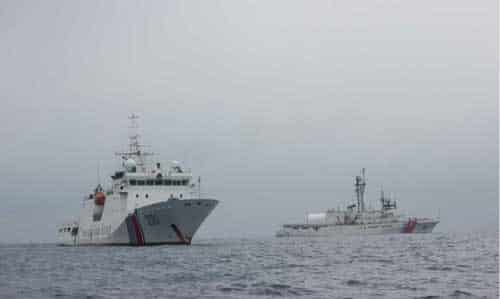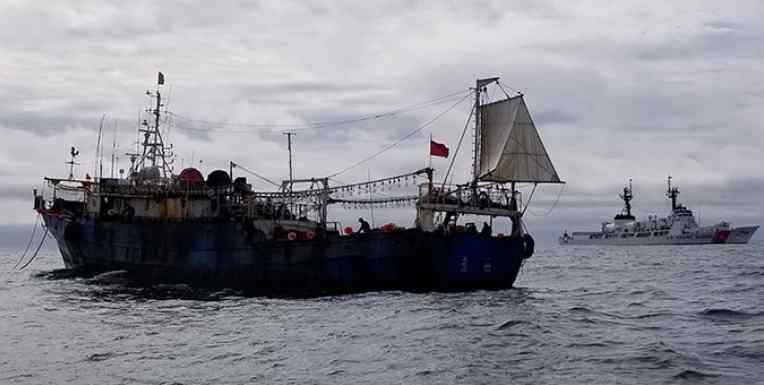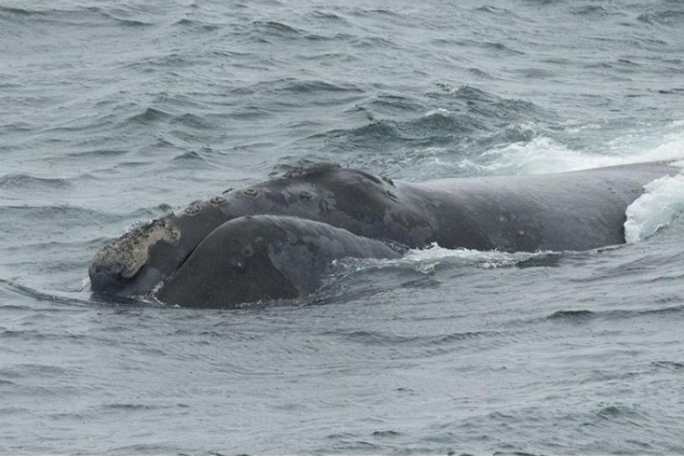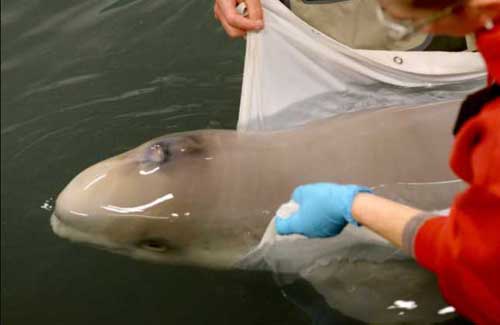 WASHINGTON – A joint investigation between the National Oceanic and Atmospheric Administration (NOAA), the United States Coast Guard (USCG), and Interpol Washington (U.S. National Central Bureau) has led to the publication of the first-ever Interpol Purple Notice issued by the United States for a vessel believed to be engaged in illegal fishing activities.
WASHINGTON – A joint investigation between the National Oceanic and Atmospheric Administration (NOAA), the United States Coast Guard (USCG), and Interpol Washington (U.S. National Central Bureau) has led to the publication of the first-ever Interpol Purple Notice issued by the United States for a vessel believed to be engaged in illegal fishing activities.
According to the Purple Notice, the fishing vessel named ‘Stellar’ was sighted twice in May 2014 operating on the high seas of the North Pacific Ocean by the USCG. It appears to change its name, national registration and other identifying characteristics in order to hide illegal activity. ‘Stellar’ is suspected of engaging in illicit fisheries transshipment activities near the Russian Exclusive Economic Zone.
‘Stellar’ was last known to have arrived in the port of Busan, Korea on June 3, 2014. The USCG provided information to the Korean authorities regarding the suspicious activities of ‘Stellar’ and recommended the vessel be inspected for potential violations.
“Illegal fisheries activity has a wide-ranging impact on the health and sustainability of the oceans fish stocks,” said Bruce Buckson, Director of NOAA’s Office of Law Enforcement. “We’re pleased to be working with Interpol, its member agencies, and the U.S. Coast Guard to combat this type of activity. We expect this international effort will help level the playing field for U.S. domestic fishers.”
“I commend NOAA, the USCG and Interpol Washington’s Economic Crimes Division representatives for their extraordinary efforts, collaboration and partnership during this investigation which has resulted in the first Interpol Purple Notice issued by U.S. law enforcement authorities,” stated Interpol Washington Director Shawn A. Bray.
The United States wishes to make all 189 other Interpol member countries aware of the suspected illegal operations of the fishing vessel ‘Stellar’ (also known as ‘Sungari’). By raising awareness of this vessel’s operations, member countries will be able to investigate possible violations of their laws and take appropriate enforcement measures should the vessel attempt to operate illegally in their waters or ports, or under their national jurisdiction.








